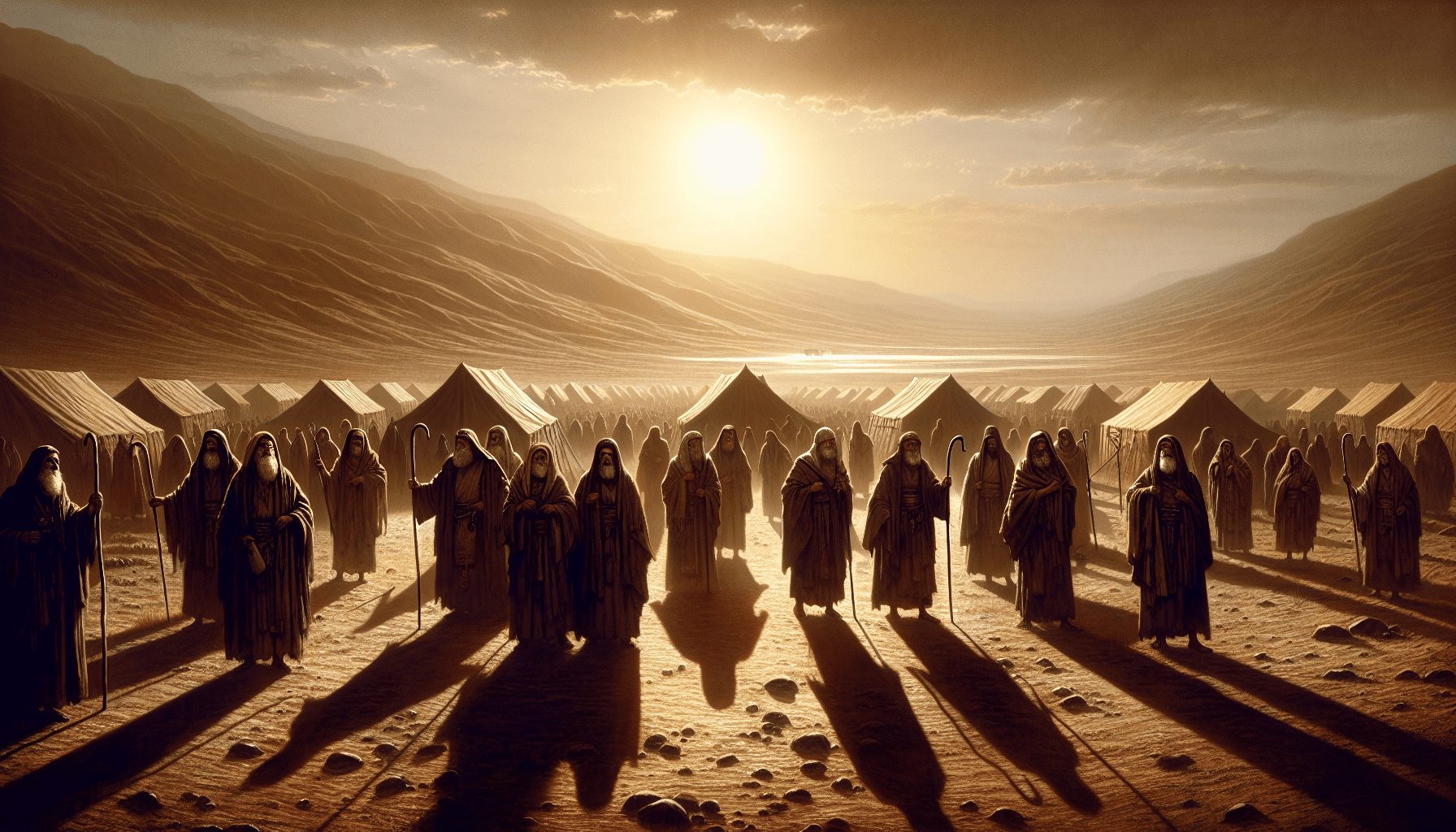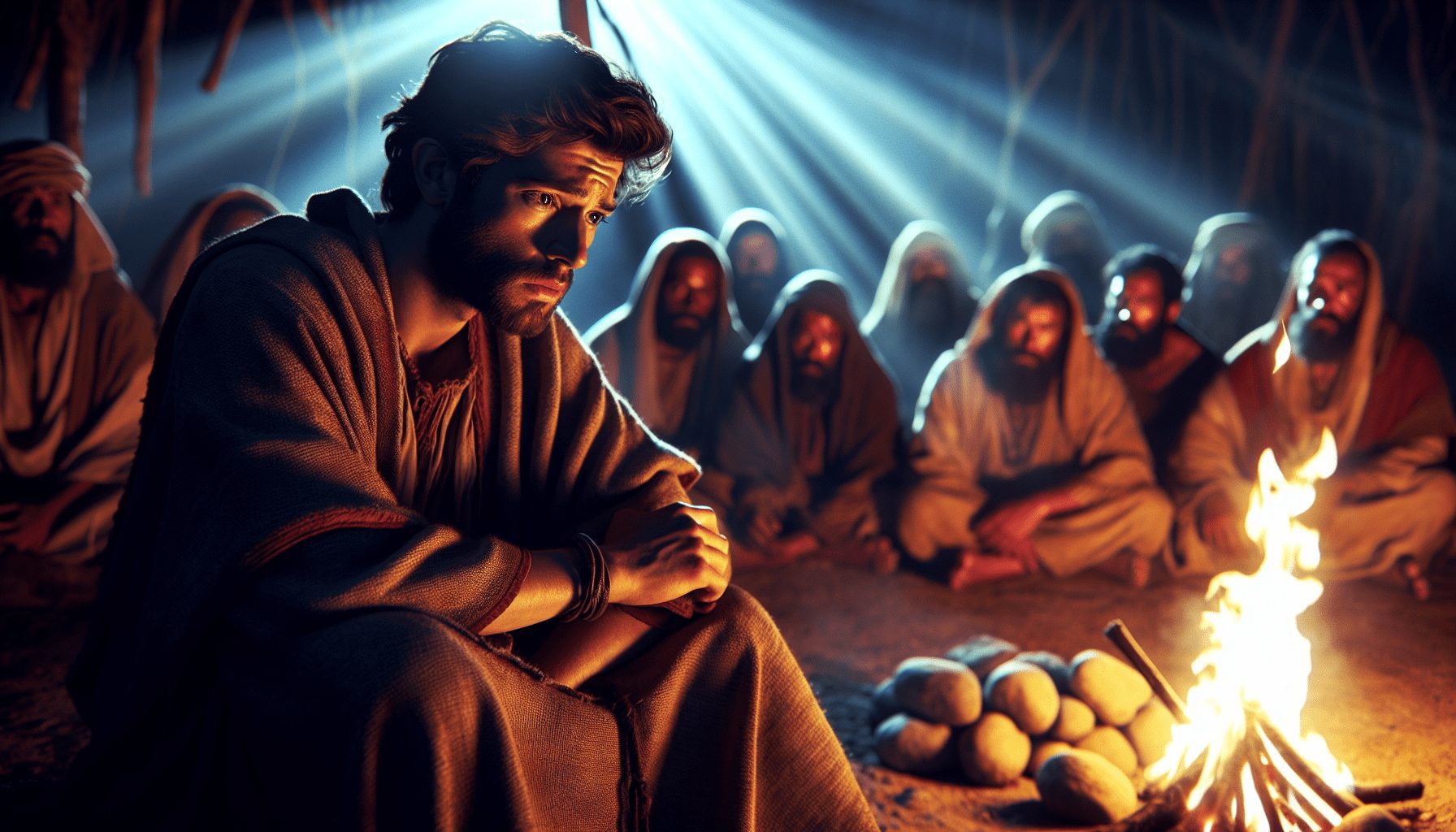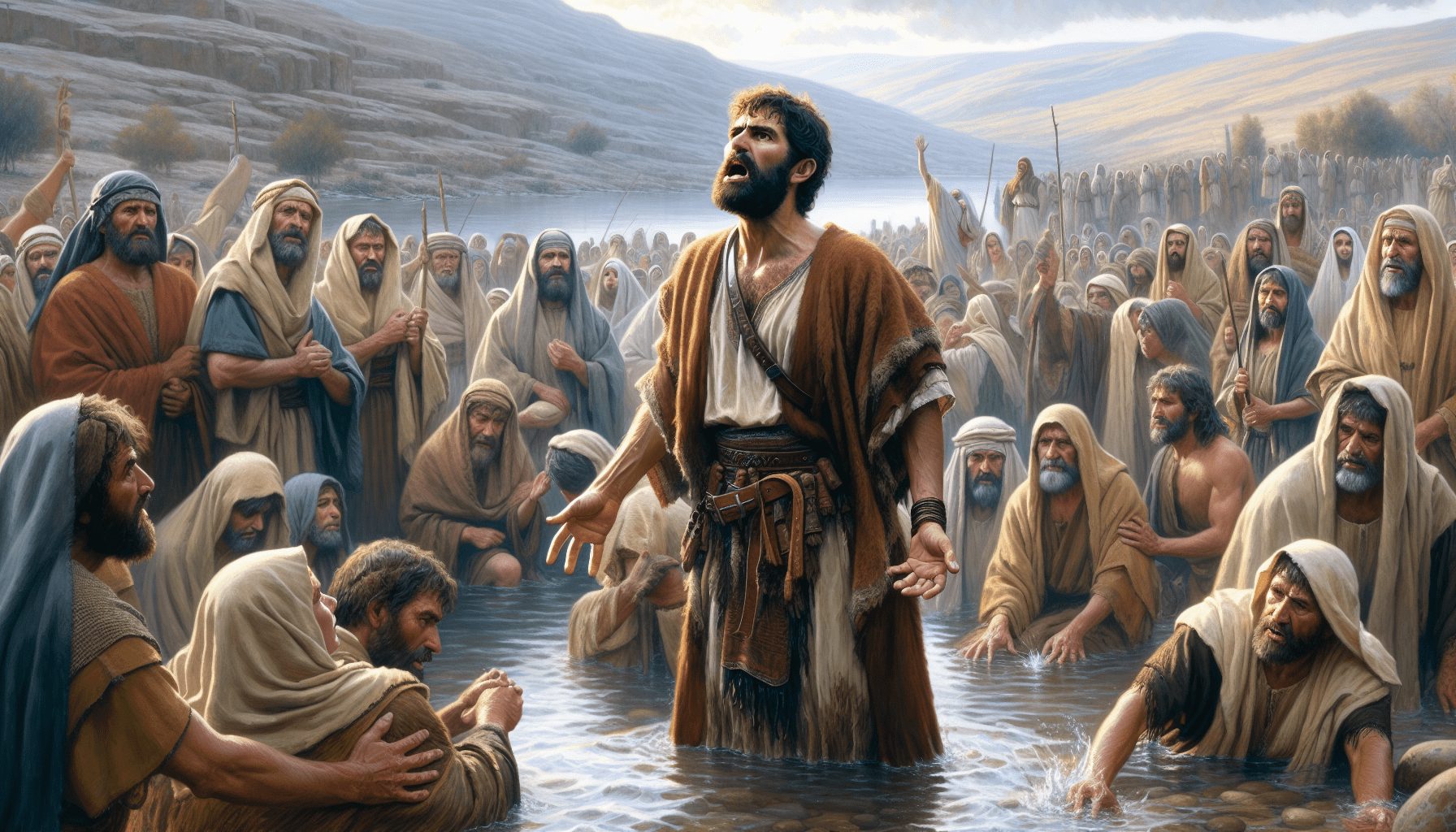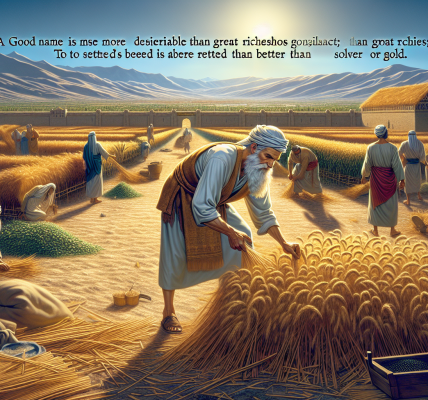**The Altar on Mount Ebal**
The sun rose over the rugged hills of Canaan, casting golden light upon the Israelite camp gathered in the valley below. The people stirred with anticipation, for today was no ordinary day. Moses, their aged but unwavering leader, stood before them, his face radiant with the weight of divine instruction. The Lord had commanded a solemn ceremony—one that would mark their covenant with Him as they prepared to enter the land flowing with milk and honey.
With the Jordan River behind them and the promised land before them, Moses raised his hands, and the murmuring crowd fell silent. “Hear, O Israel,” he began, his voice carrying across the multitude. “Today you have become the people of the Lord your God. You shall therefore obey His voice and keep His commandments, which I command you today.”
He turned toward the elders of the tribes and beckoned them forward. “When you cross the Jordan, you shall set up large stones on Mount Ebal. Coat them with plaster and inscribe upon them all the words of this law—clearly and distinctly.” The elders nodded, their faces solemn. This was no small task; the law of God was to be displayed for all to see, a perpetual reminder of their covenant with the Almighty.
Moses continued, his tone grave. “And there, on Mount Ebal, you shall build an altar to the Lord your God—an altar of uncut stones, upon which no iron tool has been used.” The people understood the significance: this altar was to be pure, untouched by human craftsmanship, a symbol of God’s unaltered holiness. “You shall offer burnt offerings upon it to the Lord,” Moses declared, “and you shall sacrifice peace offerings and eat there, rejoicing before the Lord your God.”
The instructions were clear. Six tribes—Simeon, Levi, Judah, Issachar, Joseph, and Benjamin—were to stand upon Mount Gerizim to proclaim blessings over the people. The other six—Reuben, Gad, Asher, Zebulun, Dan, and Naphtali—were to stand upon Mount Ebal to pronounce the curses. The Levitical priests, robed in their sacred garments, would stand in the valley between, their voices rising as they declared the law before all Israel.
As the people listened, a reverent hush fell over them. The blessings were glorious—promises of prosperity, fruitfulness, and divine favor for those who walked in obedience. But the curses were terrifying—warnings of desolation, disease, and exile for those who turned away from the Lord’s commandments. Each pronouncement was met with a resounding “Amen!” from the people, their voices echoing between the mountains like thunder.
Moses fixed his gaze upon them, his eyes burning with urgency. “This day, you have declared yourselves to be the Lord’s people. Remember these words. Let them be written on your hearts as they are written on these stones. Do not forget the covenant, lest you bring upon yourselves the curses sworn before God.”
With the ceremony concluded, the people dispersed, their hearts heavy yet resolute. The stones on Mount Ebal stood as a silent witness, a reminder that they were a people set apart, bound by the law of the Lord. And as the sun dipped below the horizon, painting the sky in hues of crimson and gold, the Israelites knew one truth above all: to obey was life, but to forsake the Lord was death.
Thus, the word of God was established in the land, and the people carried His commandments with them—inscribed not only on stone but upon their very souls.




